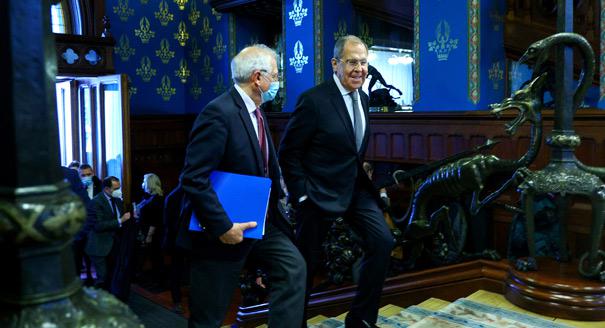On December 15–16, I chaired the Asia-Europe Meeting (ASEM). What might seem to be a rather bureaucratic acronym is in fact politically a highly relevant event for our continents. I had offered to host this meeting in Madrid when I was still Foreign Minister of Spain, and subsequently chaired it as EU High Representative for Foreign Affairs and Security Policy. It underlines my personal interest in the fast-moving continent that is Asia today.
ASEM brings together fifty-three partners made up of the twenty-eight EU member states, Norway, Switzerland, and the EU, as well as the Russian Federation, twenty Asian countries, and the ASEAN Secretariat. Together we represent:
- 55 percent of global trade
- 60 percent of global GDP
- 60 percent of the global population
- 75 percent of global tourism
Simply bringing countries together does not, of course, guarantee any results. But it creates opportunities. In recent years, ASEM has become increasingly relevant and strategic. This ASEM meeting was an important opportunity to further strengthen cooperation between Europe and Asia.
There is a clear willingness from ASEM countries to engage on global issues and to take on more responsibility, from supporting sustainable development to rules-based global trade, information sharing on cross-border threats, and the prevention or peaceful resolution of conflicts. ASEM has acquired a new rationale and momentum as a key platform to uphold and promote rules-based, multilateral approaches. In today’s challenging world, this kind of cooperation and leadership is imperative.
In recent years, sustainable connectivity has been a key theme of our discussions—and will continue to be so. The same goes for combating climate change. Last week we adopted the EU Green Deal and made the ground-breaking commitment to make Europe the first climate-neutral continent by 2050. But our ambition must be global and we need collective action. To safeguard our planet and to promote sustainable development, cooperation with our Asian partners is key.
In addition, we cooperate on the most pressing issues on the international agenda: the situation on the Korean peninsula and in Rakhine State in Myanmar, the Middle East peace process, Iran and the wider region, and efforts to bring peace to Afghanistan—to name just a few. We also work on the need to uphold multilateralism and address security challenges, as well as to promote gender equality and women’s empowerment.
During my mandate as High Representative, I will conduct EU foreign policy with realism and a strong sense of partnership. I want to work closer with our Asian partners on key priorities such as our partnership with Africa, the Western Balkans, finding a solution to the situation in Libya or a peaceful resolution of the conflict in eastern Ukraine, on Iran, and much more.
All of these issues were discussed at our political meeting. But the real Asia-Europe meeting happens every day:
when students from our respective continents swap Europe for Asia, or vice versa, to study at university;
when business transactions take place between European and Asian companies—big or small;
when we visit each other’s continents, either as tourists or as friends, to take in the best that Asia and Europe have to offer;
and when researchers from our two continents put their minds together to work toward ground-breaking innovation.
At meetings like ASEM we create the environment and the conditions to enhance the connections we have between our societies and our citizens. This is the real goal of frameworks such as ASEM. I look forward to doing this with Europe’s Asian partners and friends in the years to come. It’s time to translate Europe and Asia’s power into a real partnership.
This material is part of the “Russia-EU: Promoting Informed Dialogue” project, supported by the EU Delegation to Russia.
